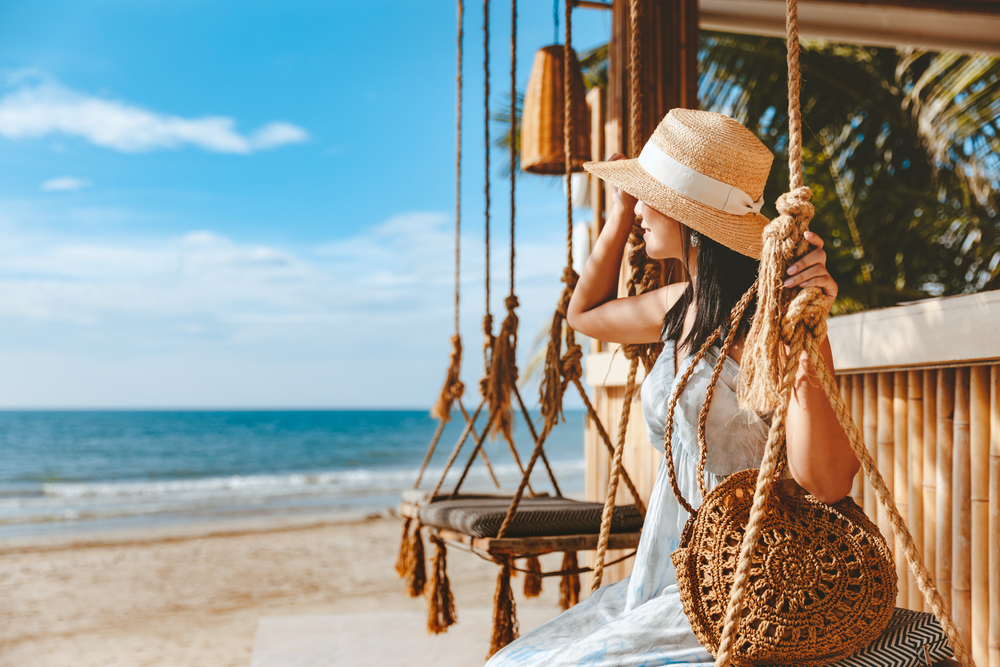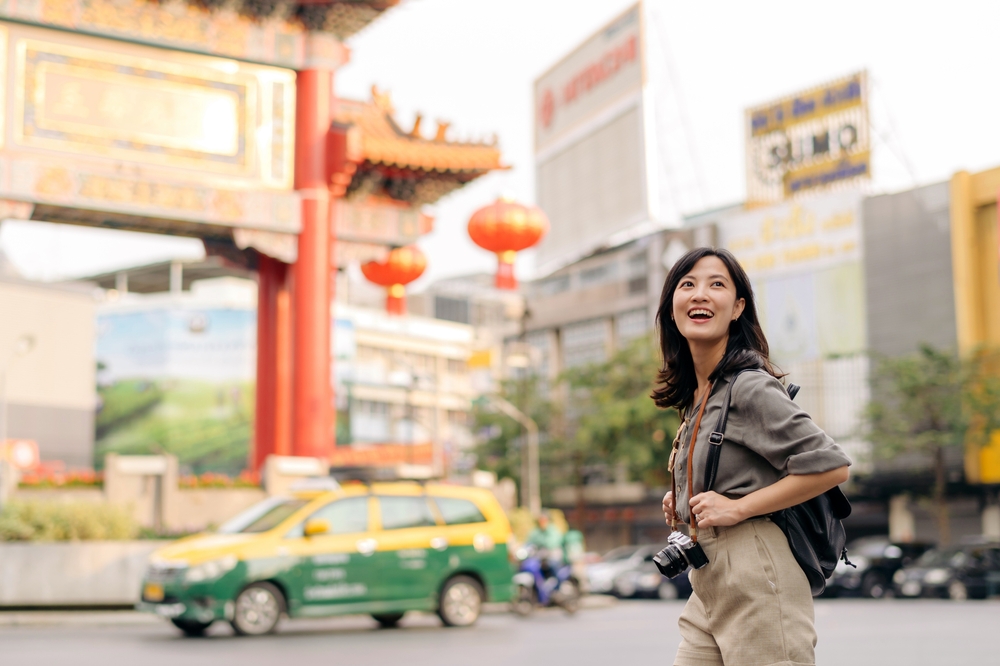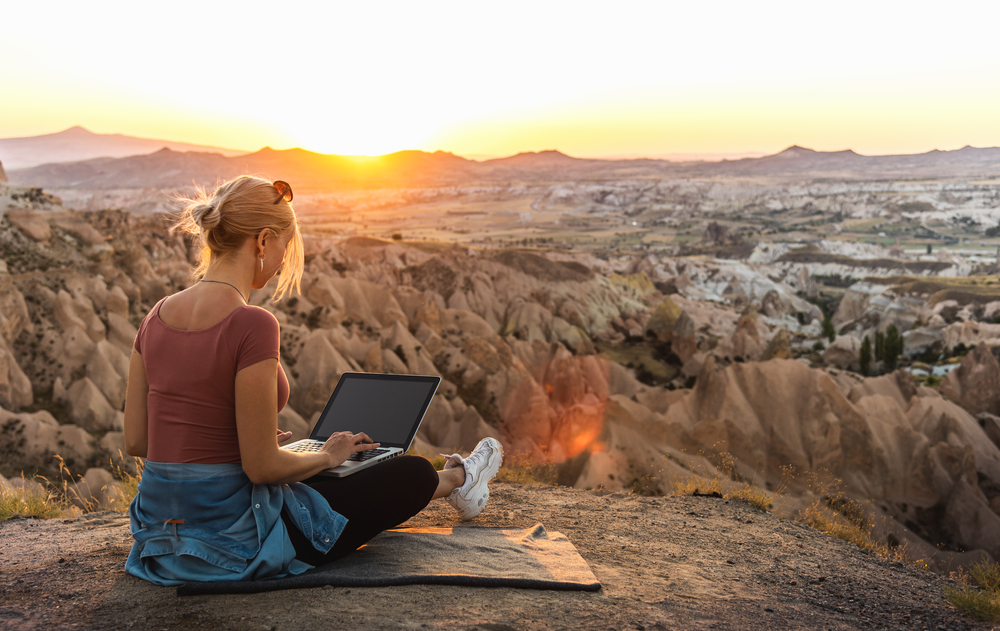Solo travel has seen a significant rise in popularity in recent years. While it offers unique opportunities for personal growth and discovery, it also presents distinct safety challenges. Understanding and mitigating these risks is crucial for ensuring a safe and enjoyable solo travel experience.
Oversharing Information
One of the most common mistakes solo travelers make is oversharing information, both online and in person.

Risks of sharing travel plans on social media:
- Alerting potential criminals to your absence from home
- Providing real-time location information to malicious individuals
- Inadvertently sharing details about your solo status
Dangers of being too open with strangers about accommodations:
- Exposing vulnerability as a solo traveler
- Increasing risk of theft or personal harm
- Compromising the security of your temporary residence
To mitigate these risks, limit the details you share online and be cautious about the information you provide to strangers you meet while traveling.
Read: The Biggest Health Risks to Avoid When Traveling to Tropical Destinations
Neglecting to Research the Destination
Failing to adequately research your destination can lead to numerous safety issues.
Importance of understanding local customs and laws:
- Avoiding unintentional offense or legal trouble
- Understanding appropriate dress codes and behavior
- Recognizing local scams or tourist traps
Consequences of failing to identify unsafe areas or neighborhoods:
- Increased risk of theft or assault
- Accidentally wandering into high-crime areas
- Making poor choices in accommodation location
Thorough research before your trip can significantly reduce these risks and enhance your overall travel experience.
Ignoring Gut Feelings
Intuition plays a crucial role in personal safety, especially in unfamiliar environments.
The value of trusting instincts in unfamiliar situations:
- Subconscious recognition of potential threats
- Quick decision-making in ambiguous circumstances
- Avoiding situations that may escalate to danger
Examples of when to heed internal warning signs:
- Feeling uncomfortable with a guide or tour operator
- Sensing tension or hostility in a particular area
- Doubting the legitimacy of a too-good-to-be-true offer
Trusting and acting on these instincts can often prevent solo travelers from entering harmful situations.
Failing to Stay Connected
Maintaining communication with trusted contacts is vital for solo traveler safety.
Risks of not keeping in touch with family or friends:
- Delayed response in case of emergencies
- Lack of support system during the trip
- Increased vulnerability due to isolation
Importance of having a check-in system:
- Regular updates on your whereabouts and well-being
- Predetermined actions if you fail to check-in
- Quick alert system in case of emergencies
Implementing a reliable communication plan with contacts at home provides an essential safety net for solo travelers.
Read: 7 tips for avoiding food poisoning while traveling
Carrying Valuables Carelessly
The mishandling of valuables is a common mistake that can lead to theft or loss.
Risks of flashing expensive items:
- Attracting unwanted attention from potential thieves
- Marking oneself as a target for scams or robbery
- Creating a perception of wealth that may lead to overcharging
Improper storage of important documents and money:
- Increased risk of pickpocketing or theft
- Potential loss of critical items such as passports or credit cards
- Difficulty in accessing emergency funds if primary storage is compromised
To mitigate these risks, use discreet carrying methods, divide valuables among multiple secure locations, and avoid unnecessary display of expensive items.
Not Having a Backup Plan

Failing to prepare for unexpected situations can exacerbate problems when they arise.
Importance of contingency plans for emergencies:
- Quick response to unforeseen circumstances
- Reduced stress in crisis situations
- Increased likelihood of resolving issues efficiently
Consequences of failing to have copies of important documents:
- Difficulty proving identity or travel authorization if originals are lost
- Delays in replacing lost or stolen documents
- Potential legal issues when crossing borders or dealing with authorities
Develop comprehensive contingency plans and keep digital and physical copies of crucial documents in separate, secure locations.
Overindulging in Alcohol or Drugs
Excessive consumption of alcohol or drugs significantly impairs judgment and increases vulnerability.
Increased vulnerability when under the influence:
- Reduced awareness of surroundings and potential threats
- Impaired decision-making abilities
- Increased likelihood of engaging in risky behaviors
Risks of accepting drinks from strangers:
- Potential for drink spiking and subsequent theft or assault
- Unknowingly consuming substances with severe health consequences
- Creating situations where personal boundaries may be compromised
Maintain moderation in alcohol consumption and never accept drinks from unknown individuals to preserve personal safety.
Neglecting Personal Health
Failure to address health concerns can lead to serious issues while traveling alone.
Consequences of ignoring travel insurance:
- Potential for significant medical expenses in case of illness or injury
- Lack of coverage for trip cancellations or interruptions
- Absence of emergency assistance services in unfamiliar locations
Risks of not packing necessary medications:
- Difficulty obtaining prescription medications in foreign countries
- Potential health emergencies due to missed doses
- Compromised ability to manage existing health conditions
Prioritize health preparations by securing comprehensive travel insurance and packing an adequate supply of necessary medications.
Being Too Trusting
Excessive trust in strangers can lead to dangerous situations for solo travelers.
Risks of trusting strangers too quickly:
- Vulnerability to scams or theft
- Potential for being led into unsafe situations
- Sharing of personal information that could be exploited
Importance of maintaining healthy skepticism:
- Enhanced ability to recognize potential threats
- Reduced likelihood of falling victim to common tourist traps
- Preservation of personal boundaries and safety
While openness to new experiences is valuable, maintain a balanced approach by exercising caution and verifying the credibility of new acquaintances and offers.
Not Learning Basic Self-Defense
Acquiring fundamental self-defense skills can significantly enhance personal safety during solo travel.
Value of knowing simple self-defense techniques:
- Increased confidence in navigating unfamiliar environments
- Ability to respond effectively to potential physical threats
- Enhanced capacity to de-escalate confrontational situations
Importance of situational awareness:
- Early detection of potential threats or suspicious behavior
- Improved decision-making in high-risk scenarios
- Reduced likelihood of inadvertently entering dangerous situations
Invest time in learning basic self-defense techniques and practice maintaining heightened awareness of your surroundings.
Read: Travel Insurance: Is it Worth it?
Choosing Unsafe Accommodations
The selection of accommodation plays a crucial role in maintaining personal safety while traveling solo.
Risks of booking accommodations without proper research:
- Exposure to high-crime areas or unsafe neighborhoods
- Vulnerability to theft or assault due to inadequate security measures
- Potential health hazards from substandard living conditions
Importance of reading reviews and checking security measures:
- Gaining insights from previous guests’ experiences
- Verifying the presence of essential safety features (e.g., secure locks, safes)
- Assessing the overall reputation and reliability of the accommodation
Thoroughly research potential accommodations, prioritizing safety features and positive reviews from solo travelers.
Neglecting Digital Security

In an increasingly digital world, protecting one’s online presence is as crucial as physical safety.
Risks of using public Wi-Fi without protection:
- Vulnerability to data theft and identity fraud
- Exposure of sensitive information (e.g., banking details, passwords)
- Potential for device hacking or malware infection
Importance of securing digital devices and accounts:
- Use of strong, unique passwords for all accounts
- Implementation of two-factor authentication where possible
- Regular updates of device software and security applications
Utilize a Virtual Private Network (VPN) when accessing public Wi-Fi and maintain stringent security practices for all digital interactions.
Not Blending In
Drawing unnecessary attention to oneself as a tourist can increase vulnerability to various risks.
Dangers of standing out as a tourist:
- Increased likelihood of being targeted by pickpockets or scammers
- Potential for overcharging or exploitation by local vendors
- Unwanted attention in culturally conservative areas
Importance of dressing and behaving appropriately for the location:
- Respect for local customs and cultural norms
- Reduced visibility as an obvious outsider
- Enhanced ability to navigate local environments inconspicuously
Research local dress codes and customs before your trip, and strive to adopt local mannerisms and behaviors to blend in more effectively.
By addressing these common safety mistakes, solo travelers can significantly reduce their risk exposure and enhance their overall travel experience. Remember, while solo travel offers unique opportunities for personal growth and adventure, it also requires a heightened sense of responsibility for one’s own safety and well-being.






